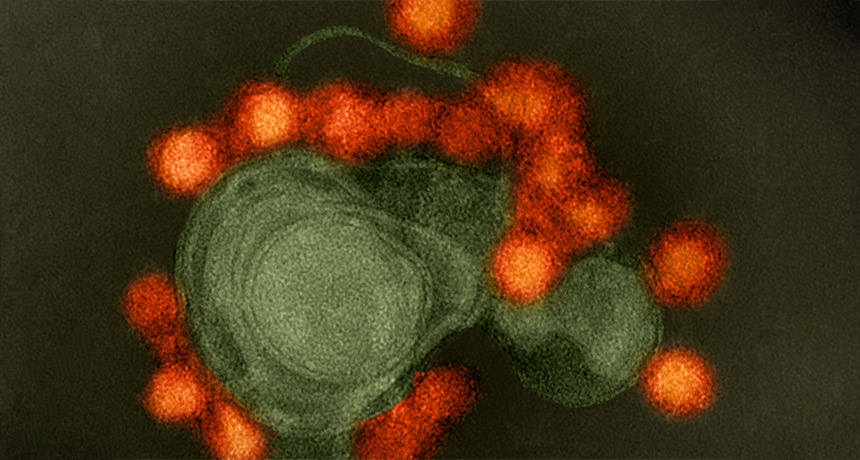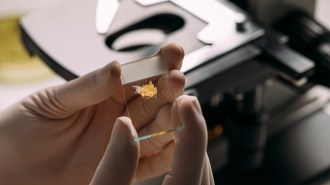Zika disrupts cellular processes to impair brain development
Virus also causes spike in protein that controls cell growth, death

ATTACK MODE Researchers are learning about how the Zika virus (red) causes brain cells to stop growing, leading to microcephaly. Those discoveries may lead to treatments that can counteract the virus’s effect on developing brains.
NIAID/Flickr (CC BY-SA 2.0)







